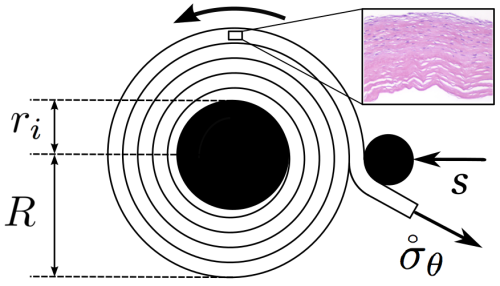Manufacturing of information-rich elastic bodies through surface deposition.
In this talk I will discuss a recent theory, developed in collaboration with Lev Truskinovsky, that describes how desired distributions of residual stress can be achieved in bodies that are manufactured though the local addition of mass on their boundary [1],[2].
The source of residual stresses in elastic bodies is incompatibility of their reference configuration, that can not be isometrically embedded into the Euclidean space. A reference configuration is characterized by a metric tensor and in Euclidean solids this metric is flat. In residually stressed, ``non-Euclidean solids’’ the reference metric is curved, and the associated geometrical frustration manifests itself through residual stresses.
A curved metric can be embedded into a solid by using rather well understood techniques of differential swelling, inhomogeneous thermal expansion, bulk growth and remodelling. However, geometrical frustration can also emerge as a result of surface accretion, as in tree growth, roll winding and dam construction. In our work we model surface growth through a non-holonomic approach, that allows for the incompatibility to be acquired at the moment of the creation of a new continuum particle. We then consider a general inverse problem of this type and view the deposition stress as a tensorial control parameter. We find an explicit link between the implemented deposition strategy and the resulting incompatibility. The obtained relations not only reveal the mechanisms of biological adaptation associated with surface growth, but can also guide additive manufacturing of programmable meta-materials. As an application, we discuss the possibility to manufacture arteries with a target content of residual stresses by wind rolling sheets of living cells.
[1] Z.G., Truskinovsky L., Phys. Rev. Lett. 119, 048001 (2017).
[2] Z.G., Truskinovsky L., Mech.Res.Comm., in press (2018).
